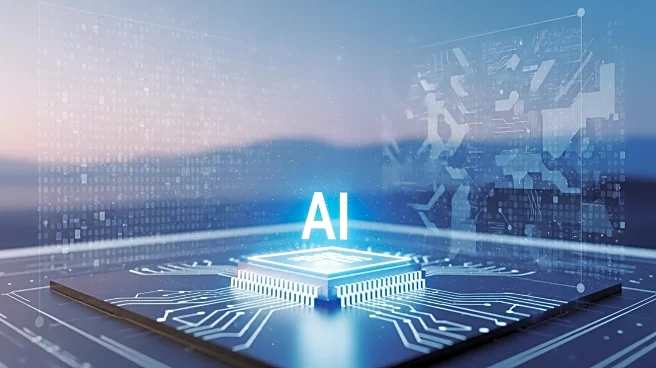What's Happening?
According to the India Skills Report, over 40% of India's IT and gig workforce is utilizing AI tools for automation, analytics, and creative production. This adoption has contributed to an increase in employability, which has risen to 56.35% from 54.81%
in 2025. The report, released by Educational Testing Service in collaboration with several industry and educational bodies, highlights the demographic advantage of India's workforce, with an average age of 28.4. It also notes that women have surpassed men in job readiness for the first time, driven by hybrid work and digital skilling initiatives.
Why It's Important?
The widespread use of AI tools in India's IT sector signifies a shift towards more technologically advanced and efficient work processes. This trend is enhancing job readiness and skill adaptability, positioning India as a key player in the global AI talent pool. The increase in employability rates reflects the country's potential to supply skilled professionals to meet global labor demands. The focus on AI readiness and digital skills is crucial for maintaining India's competitive edge in the technology sector and supporting economic growth.
What's Next?
India is expected to continue developing its AI-ready learning ecosystems to empower learners across various levels. The report suggests that deeper alignment between academia, industry, and government is necessary for true transformation. As the demand for AI skills grows, India is likely to see further investments in education and training programs. The BFSI and fintech sectors are projected to generate significant job opportunities, contributing to the country's role as a global talent hub.
Beyond the Headlines
The emphasis on AI tools and digital skills in India's workforce highlights the broader trend of technological integration in various sectors. This shift is not only enhancing productivity but also reshaping traditional job roles and creating new opportunities for innovation. The focus on female employability and hybrid work models reflects changing societal norms and the potential for more inclusive workforce development.















